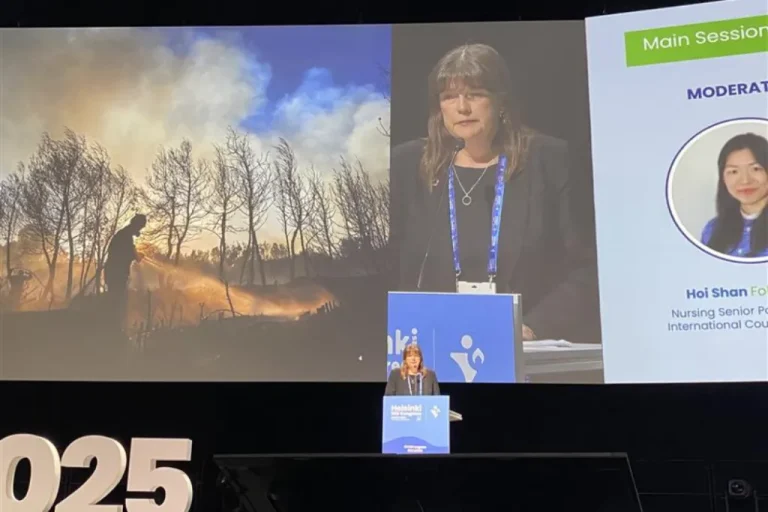International health leaders have called for more support for nurses working in areas of war and humanitarian crises.
At the 2025 International Council of Nurses (ICN) Congress, a plenary session was held focusing on nursing “on the front lines”.
“Health security in the European region stands at a pivotal moment”
Margrieta Langins
Margrieta Langins, nursing and midwifery policy advisor for the World Health Organization (WHO) in Europe, told the session about the “critical” role nurses had played in conflict zones in her region, particularly Ukraine ever since Russia invaded in 2022.
She spoke about the work Ukrainian nursing satff who stayed in the country despite the war did, pointing to the story of one nurse who works at a hospital in Kharkiv, where staffing levels are at one-fifth of the pre-war period.
“Nurses play a key role in the delivery of essential services and are often serving at the first and last point,” she said.
“Nurses are constantly expanding our thinking and our skill sets, and… this emergency helps amplify this and show how important it is to support career development, and opportunities to educate and lead.”
Ms Langins also called for better support for nurses who themselves had been attacked in Ukraine during the war.
She outlined, however, how health in Europe more broadly was in jeopardy.
“Health security in the European region stands at a pivotal moment,” she said.
“Covid-19 really demonstrated how quickly the world’s social and economic fabric can unwrap due to an acute health emergency.
“This really affirms the centrality of health security, as a pillar of national security.”
She said the continent was witnessing more outbreaks, disasters and climate change-related health ills, as well as the Ukraine conflict.
Ms Langins also paid tribute to the struggles of nurses outside of her region who are working under extreme duress.
In particular, she spoke about what she described as a “total breakdown in humanity” in Gaza, which for months now has been subject to an aid blockade by the Israeli military.
Ms Langins used her platform to call on this blockade to be lifted and for “unimpeded humanitarian access” to all disaster zones, condemning all militaries for the targeting of healthcare workers.
She said: “I want to be very clear that… human suffering is on both sides of the conflict, but the health system in Gaza is beyond breaking point.”

Tener Veenema
Dr Tener Veenema, a senior scholar at the Johns Hopkins Center for Health Security, also spoke during the session and gave “pragmatic suggestions” on how to improve the readiness of the profession to respond to disasters across the world.
Dr Veenema listed some of the crises in which nurses had been particularly prevalent in the response – including the Indian Ocean tsunami in 2004 and, more recently, the Los Angeles wildfires.
She said nurses should have a “basic set of knowledge, skills and abilities” at a “minimum” to allow them to respond to disasters when they happen.
Further, she called for better surge capacity, resources and leadership to ensure nurses were able to sufficiently respond to a disaster.

